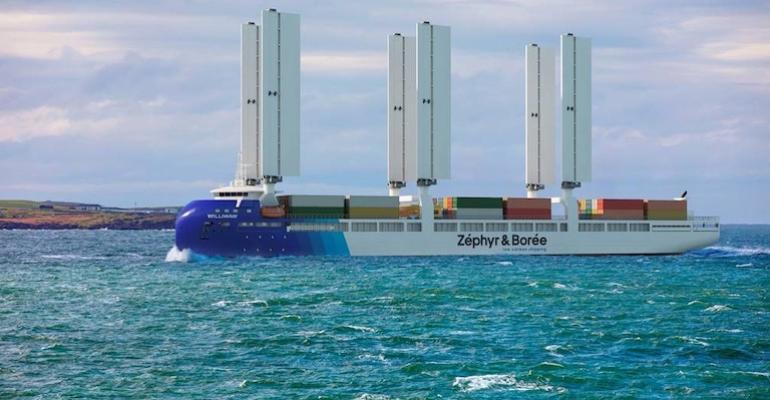The company provides support to solutions that use wind-assisted propulsion, which drastically reduces CO2 emissions. It is also signalling its determination to expand its range of services after the launch of SEAalternative2 in 2021 to promote a sustainable supply chain.
“Bolloré Logistics is a leader in global maritime transport. That is why it is essential that we play an active role in decarbonising maritime freight transport. Maritime transport of goods accounted for 3% of global greenhouse gas emissions in 2020 and is set to reach 10% by 2050. By joining this association, we want to be proactive and to head in this direction for the long term”, said Irwin Lefebvre, Bolloré Logistics’ Ocean Procurement Director.
The Coalition put out a call for tenders in early February 2022 for operating transatlantic routes between Europe and North America using essentially wind-powered container ships. They will begin in 2024 with the aim of cutting CO2 emissions in half compared to conventional shipping.
Bolloré Logistics has been committed to eco-friendly initiatives for several years. In 2018, the company launched its CSR programme “Powering Sustainable Logistics” with a goal of reducing its scope 3 CO2 emissions generated by the execution of transport by 30% by 2030 compared to 2019. The company aims at reducing greenhouse gas emissions linked to its activities and supporting its customers towards carbon neutrality in their supply chain.
Copyright © 2024. All rights reserved. Seatrade, a trading name of Informa Markets (UK) Limited.
Add Seatrade Maritime News to your Google News feed.  |

